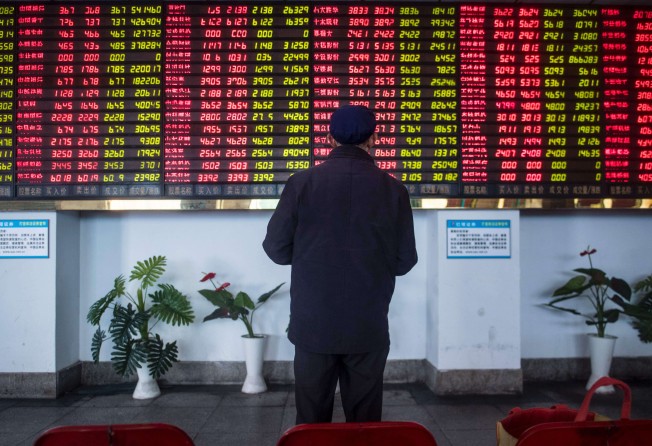China’s big-cap stocks still favourites after market run-up
UBS and Guotai Junan recommend China’s big-cap stocks even after Gree and Moutai rose to records last week

Chinese investors should stick to blue-chip stocks, even though some of them have recently risen to records, according to analysts.
Larger companies with solid earnings prospects could be the few safe havens for investors as the ongoing regulatory clampdown on market excesses and tighter liquidity will hold back valuations of smaller growth stocks, said Gao Ting, head of China strategy at UBS Group.
“We believe a small-cap turnaround is unlikely in the near term, and tactically prefer lower-valuation blue chips under the current tighter liquidity conditions,” he said.
Investors have increasingly been switching to bigger companies including Gree Electric Appliances and Kweichow Moutai, pushing their share prices to all-time high this year, after the securities regulator is targeting small-caps as its primary crackdown against manipulations, and as the valuations of smaller firms still appears stretched.
Gree Electric, China’s biggest maker of air-conditioners, and liquor giant Kewichow Moutai both rose to records last week, while Midea Group, the nation’s biggest maker of home appliances, set an all-time high in March.
Kweichow Moutai expects first-quarter earnings to increase 16 per cent, accelerating from a 7.8 per cent growth last year, while Midea’s profit rose 16 per cent last year.
Even after the rally, valuations of bigger companies still look appealing.
The Shanghai Composite Index, which is mainly dominated by large-caps, is valued at 16.2 times earnings for the past 12 months, 46 per cent cheaper than its 22-year average, according to data from Haitong Securities.
In contrast, the ChiNext gauge, a proxy for smaller growth firms, is still three times as expensive as the Shanghai Composite, even as institutional investors are constantly pulling out of the sector to seek bargains and a bubble of small-caps burst in 2015.
GF Securities and Guotai Junan Securities predict weaker earnings growth for ChiNext companies in the first quarter, as tightened rules force them to scale back buyouts, a major source of earnings growth in 2016.
The risk for small-cap is poised to loom larger as the stock exchanges pledge to step up oversight against unusual price movements and the banking regulator signals deleveraging in the financial market.
Commercial lenders were told early this month to execute more caution in their wealth management and interbank lending businesses.
“The unveiling of a spate of these stricter regulatory policies will dampen liquidity expectations,” said Li Shaojun, a strategist at Guotai Juan. “As the sector performance diversifies, leading ‘white-horse’ companies are set to benefit”, referring to blue-chip stocks.
The Shanghai Stock Exchange said on its microblog it probed 159 cases of abnormal trading involving 542 stock accounts, and issued 21 intraday trading suspensions to speculators last week.
The Shanghai Composite Index is set to beat the ChiNext gauge for a second year, with a gain of 2.2 per cent so far this year versus a 6.3 per cent loss on the small-cap measure.
The stabilisation in China’s economy may help the valuations of big-caps to recover further, according to Yan Xiang, a strategist at Guosen Securities.
“A significant decrease in the downside risk for the economy and the systematic reforms on the capital market have served as catalyst for the valuation re-rating of leading ‘white-horse’ stocks,” Yan said. “That’s expected to be sustained.”
China’s economy grew by better-than-expected 6.9 per cent in the first quarter.